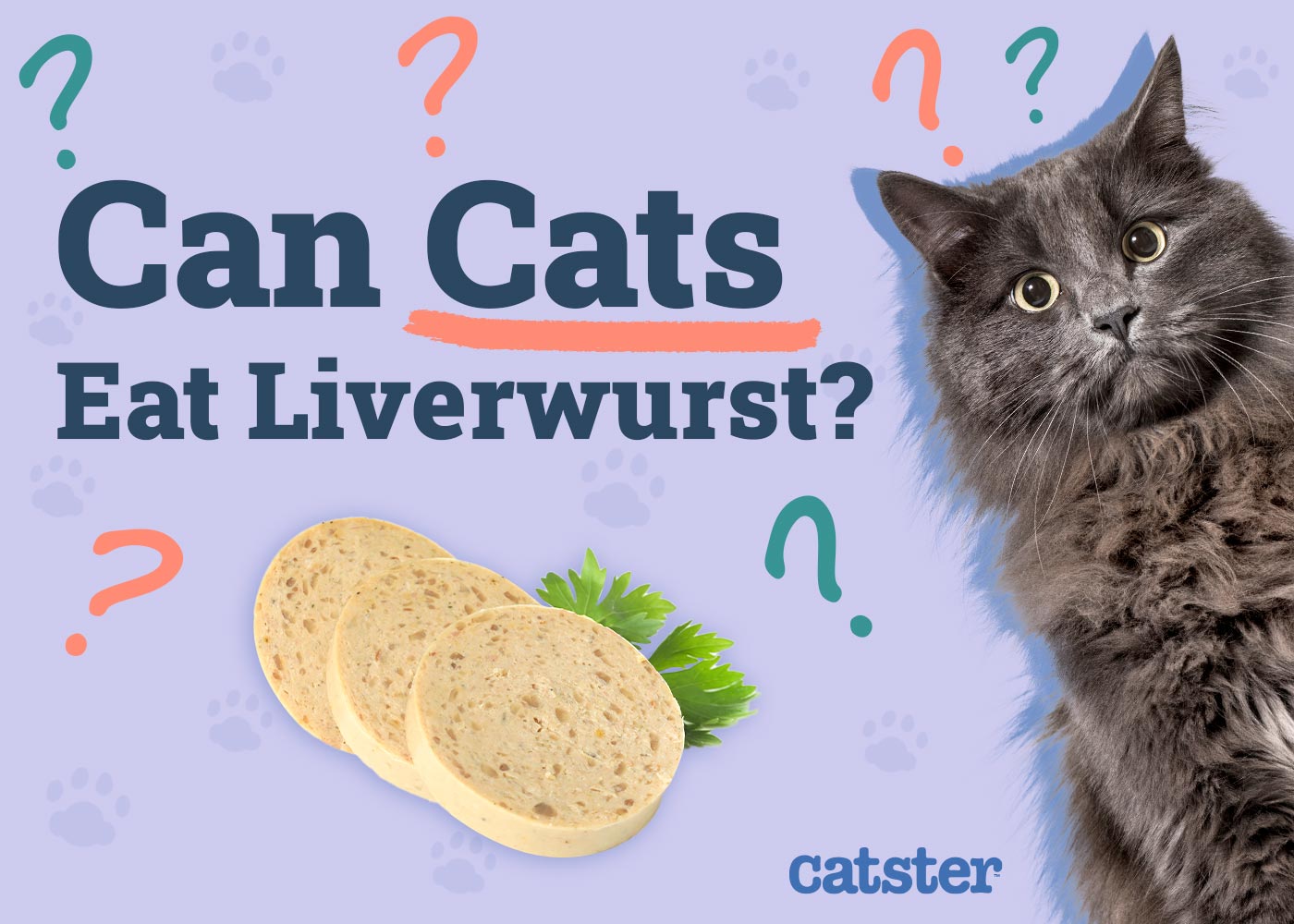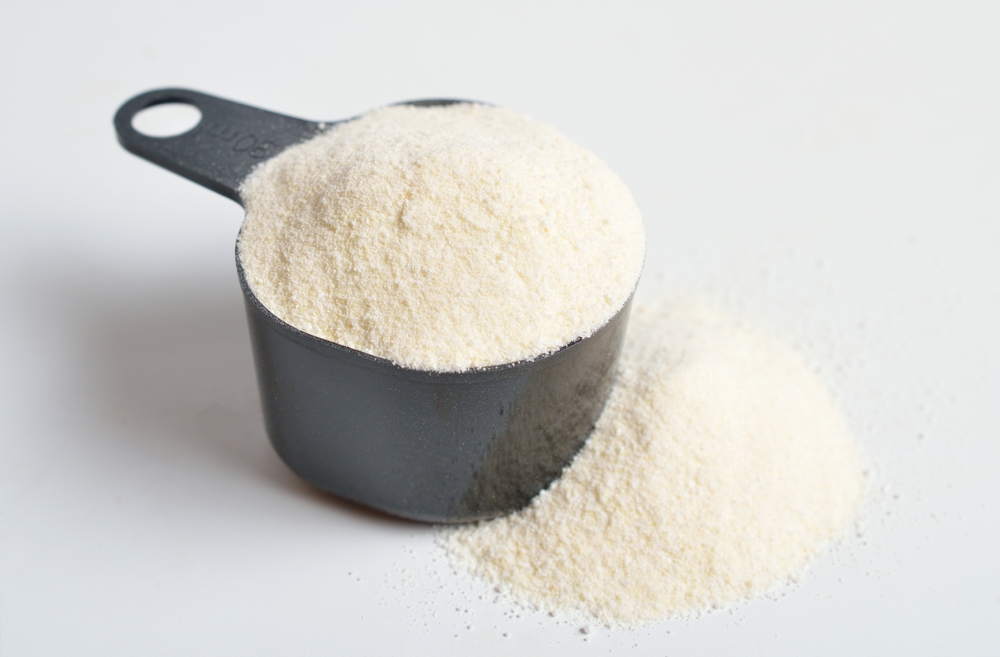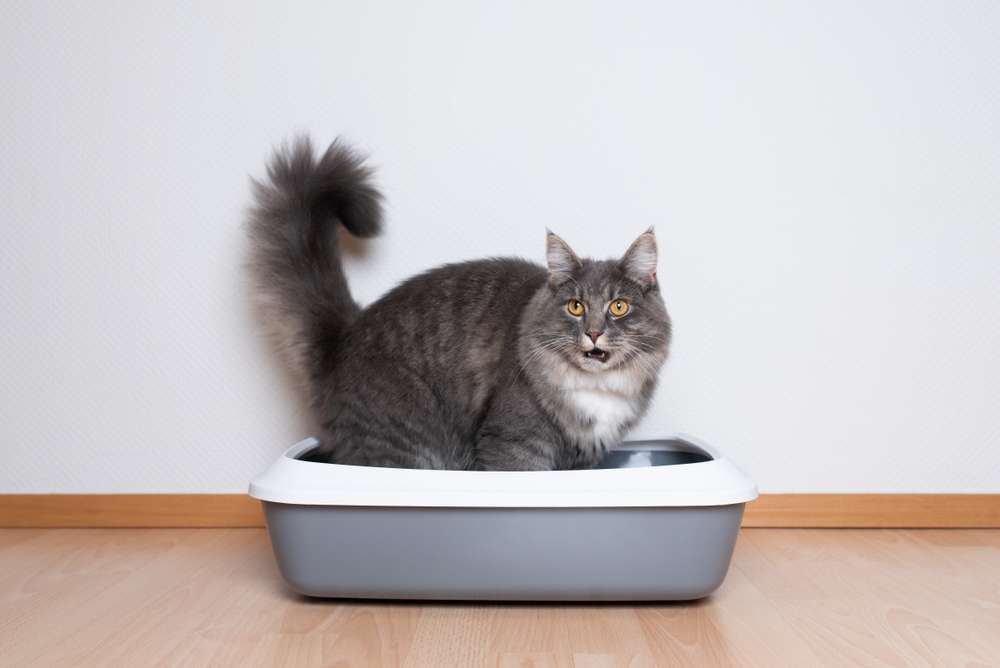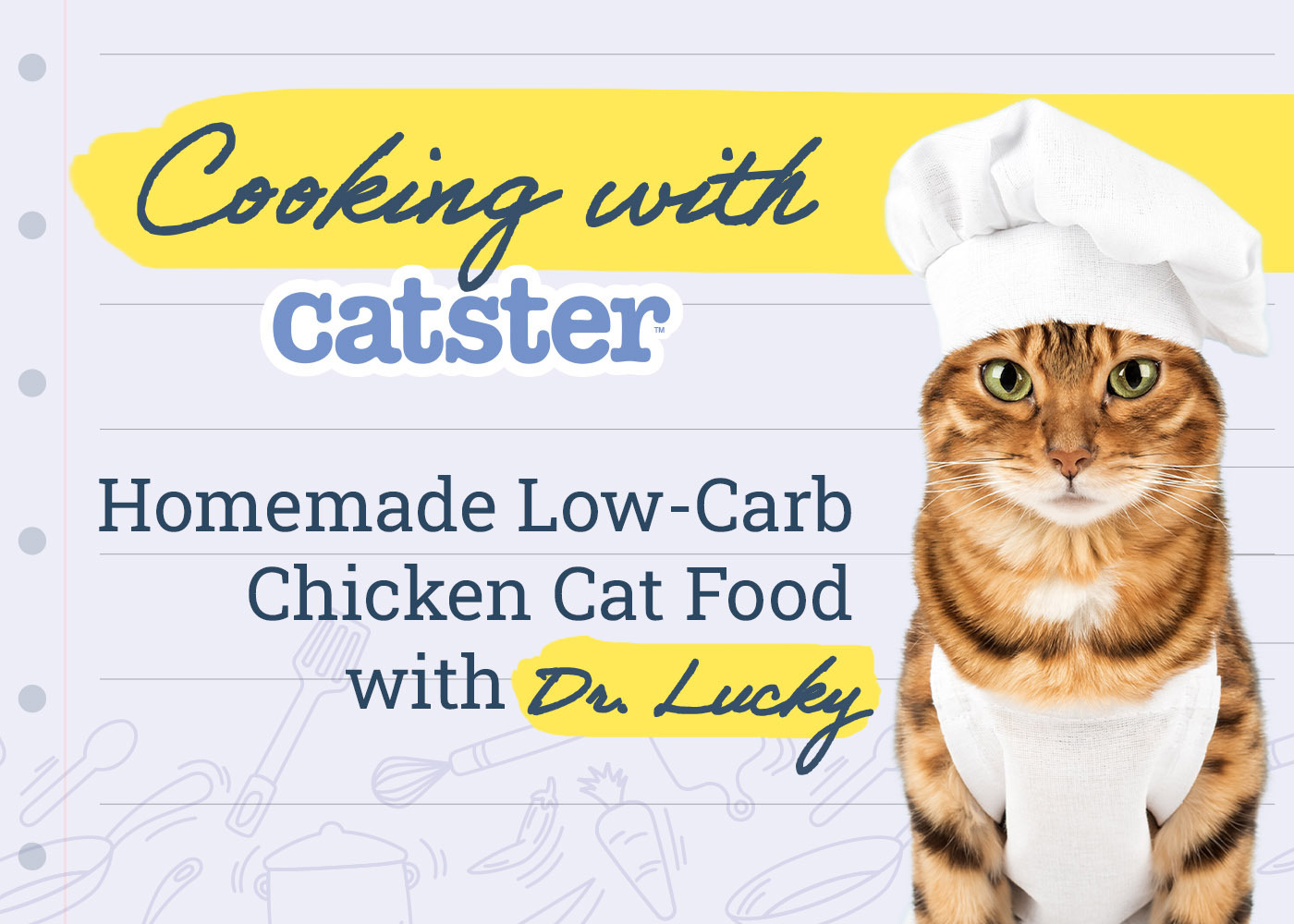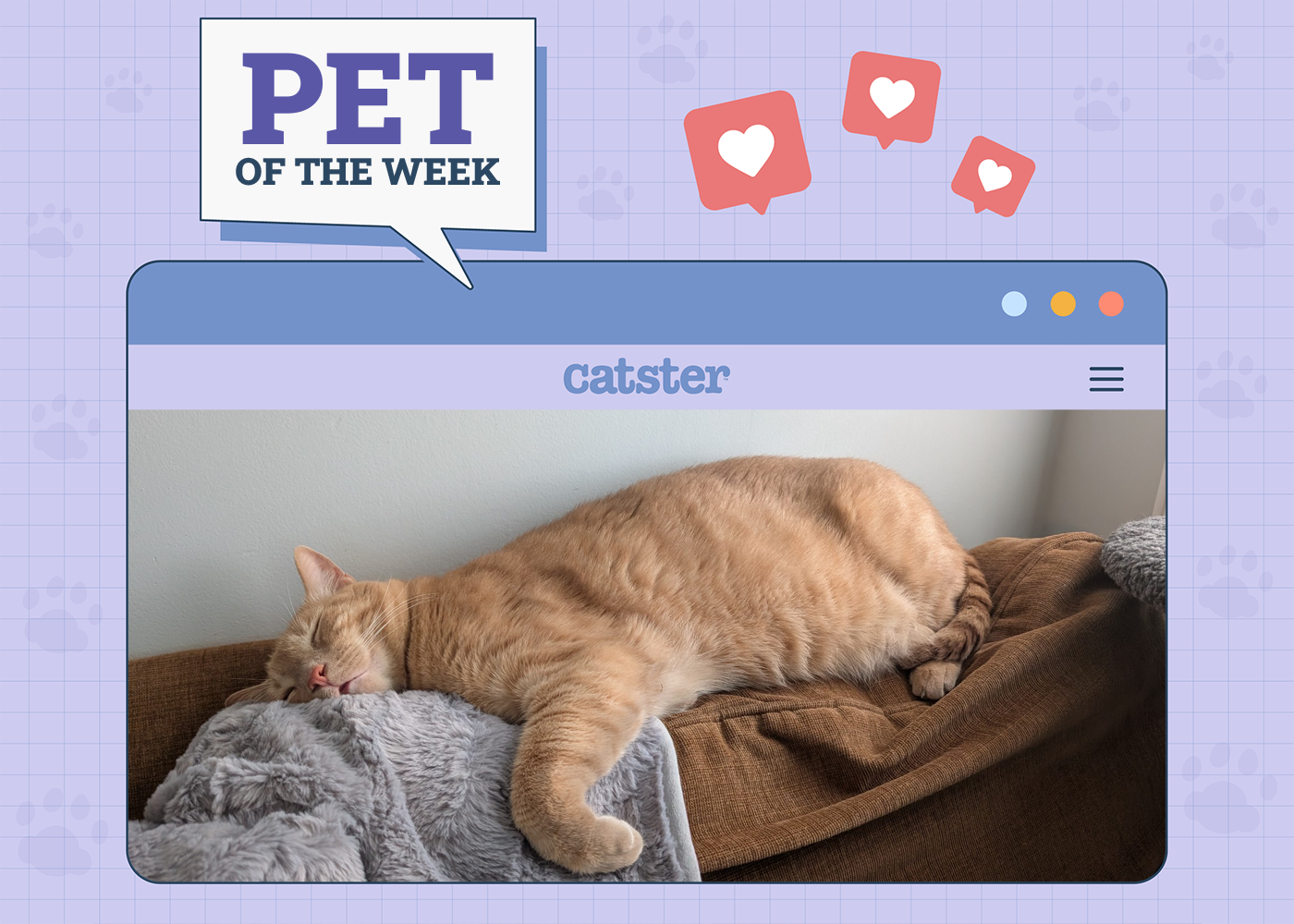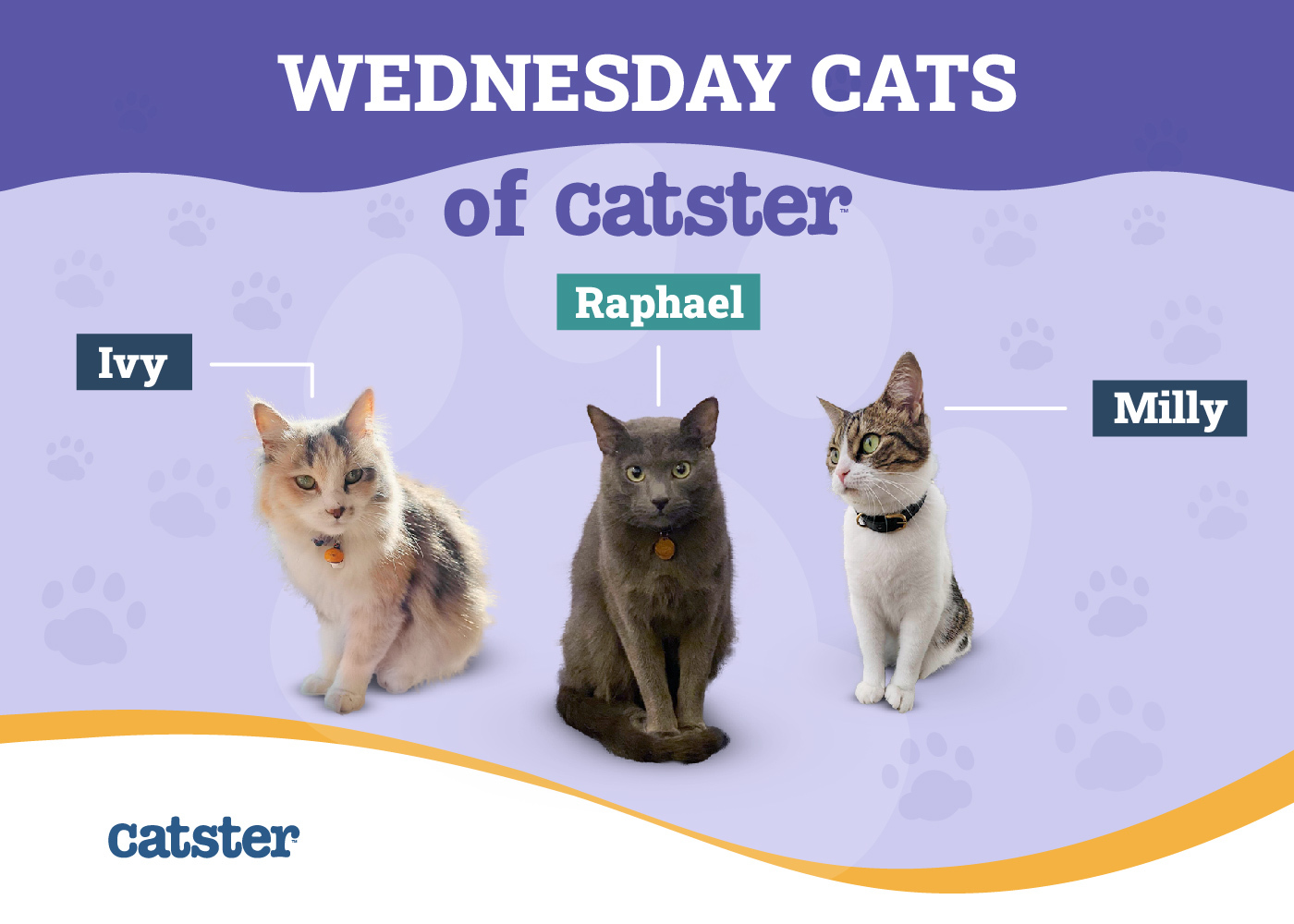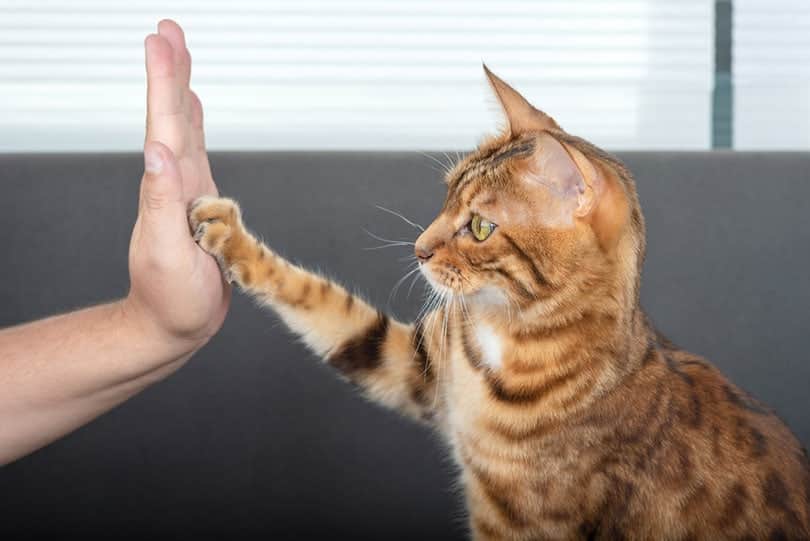Click to Skip Ahead
Feeding human cuisine to your cat is not always a wise decision, but how safe is liverwurst? Liverwurst, also known as liver sausage, is considered to be safe for cats if it’s free of additives or seasonings. However, commercially available liverwurst needs to be assessed for safety based on its ingredients to ascertain whether or not it is safe for your cat.
We’ll examine liverwurst in more detail in this article.

Can Cats Eat Liverwurst?
Liverwurst is served in the United States, but it’s more popular in South America and Europe. How is liverwurst made? Making liverwurst is similar to other sausage recipes, with the main ingredient being pigs’ or calves’ liver.
Liverwurst comes in two textures. One is sliceable meat that you can cook or add to sandwiches, and the other is a spreadable paste-like pâté. Liverwurst manufacturers use different seasonings and fillers in their recipes. These include the following
- Meat (usually veal)
- Fat
- Black pepper
- Allspice
- Thyme
- Mustard seeds
- Nutmeg
- Marjoram
Though calf and pig liver is safe for cats, the safety of the other ingredients varies, and therefore, in order to know whether or not liverwurst is safe for your pet, you would have to assess all the ingredients in the product. For example, nutmeg is commonly used in liverwurst recipes, but is considered unsafe for cats. Therefore, liverwurst containing nutmeg shouldn’t be offered to pet cats. As a general rule, if you’re not sure about the safety of a liverwurst recipe, you should not offer it to your pet.
We recommend seeking veterinarian advice before updating any of your cat’s diet.
If you need to speak with a vet but can't get to one, head over to PangoVet. It's an online service where you can talk to a vet online and get the advice you need for your pet — all at an affordable price!
Health Risks Associated with Liverwurst
In addition to the ingredient risk of liverwurst, there are other potential issues this sausage may have for your pet. Unfortunately, these risks make liverwurst very unappealing for cats, even if it was free from harmful ingredients or additives.
Poor Protein Source
Despite being a meat product, liverwurst is very low in protein 1. With 100 grams of liverwurst containing anywhere from 14 – 20 grams of protein (depending on the recipe), the protein content of liverwurst is indeed quite low.
High Fat Content
Liverwurst actually contains more fat than protein, which is considered another drawback. Though cats do require fat in their diet, the ratio of protein to fat in liverwurst is most definitely undesirable for a cat’s nutritional requirements.
Cats that eat a diet too high in fat may end up overweight or obese. These ailments can lead to even more health issues and/or exacerbate existing ailments.
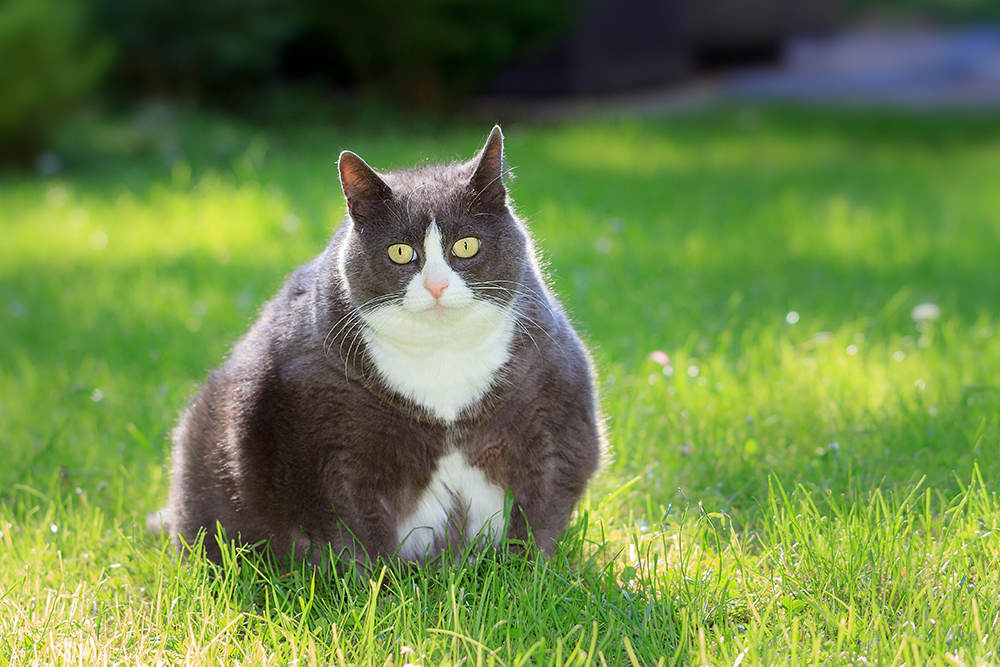
Vitamin A Toxicity
Liverwurst is a liver product. Animal liver, though safe for cats in moderation, is considered unhealthy in high amounts. This is because it contains a high amount of vitamin A (in the form of retinol). Though cats do require Vitamin A for optimal health, this vitamin can cause issues in excess.
This risk is largely eliminated if you manage your cat’s portions of a safe-to-consume liverwurst well, as cats do have a relatively good tolerance for Vitamin A. However, cats have a lower tolerance to high levels of vitamin A when compared to dogs.

Other Foods to Avoid Serving Your Cat
When you’re enjoying a meal, your pet may cry out or give you the adorable “cat eyes” to convince you to share. The feline body and digestive system are much different than a human’s, and these foods should be avoided to prevent an adverse reaction.
- Onions and garlic
- Almost all vegetables
- Almost all fruits
- Bread
- Rice
- Chocolate
- Alcohol
- Raw dough
- Fat trimmings
- Dairy products
- Caffeine (includes tea and coffee)
- Candy
- Processed foods intended for human consumption
Please note that not all of these foods are immediately toxic for cats; however none of them should be a part of your cat’s regular diet.

Final Thoughts
Due to the complex nature of the recipes of liverwurst, it’s best to not offer this sausage treat to your cat. Its nutritional downsides are considerably alarming, and despite being a meat-based product, it offers very low amounts of protein and too much fat. It is not likely to offer any benefits towards the overall health of your pet.
If you’re in doubt about the safety of your pet’s nutritional welfare, you should consult your veterinarian for more information or for safe treat options.

